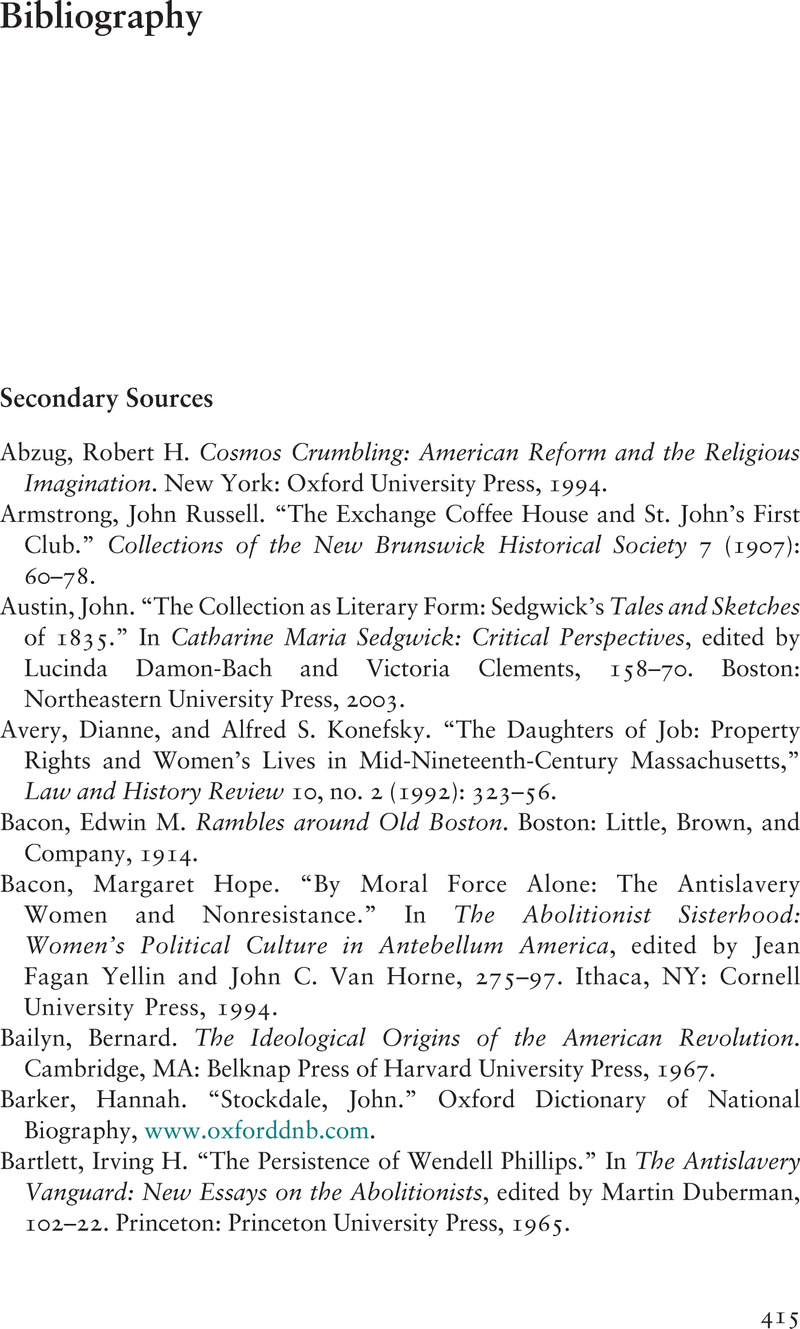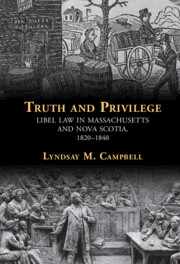Book contents
- Truth and Privilege
- Studies in Legal History
- Truth and Privilege
- Copyright page
- Contents
- Tables
- Foreword – The Osgoode Society for Canadian Legal History
- Acknowledgments
- 1 Introduction
- 2 The Common Law’s Diverging Paths
- 3 The Transformation of Privilege
- 4 Truth, Privacy and Authority
- 5 The Individual Conscience and Blasphemous and Obscene Expression
- 6 Private Defamation Suits
- 7 Conclusion
- Book part
- Bibliography
- Index
- Publications of the Osgoode Society for Canadian Legal History
- References
Bibliography
Published online by Cambridge University Press: 16 December 2021
- Truth and Privilege
- Studies in Legal History
- Truth and Privilege
- Copyright page
- Contents
- Tables
- Foreword – The Osgoode Society for Canadian Legal History
- Acknowledgments
- 1 Introduction
- 2 The Common Law’s Diverging Paths
- 3 The Transformation of Privilege
- 4 Truth, Privacy and Authority
- 5 The Individual Conscience and Blasphemous and Obscene Expression
- 6 Private Defamation Suits
- 7 Conclusion
- Book part
- Bibliography
- Index
- Publications of the Osgoode Society for Canadian Legal History
- References
Summary

- Type
- Chapter
- Information
- Truth and PrivilegeLibel Law in Massachusetts and Nova Scotia, 1820-1840, pp. 415 - 452Publisher: Cambridge University PressPrint publication year: 2021

